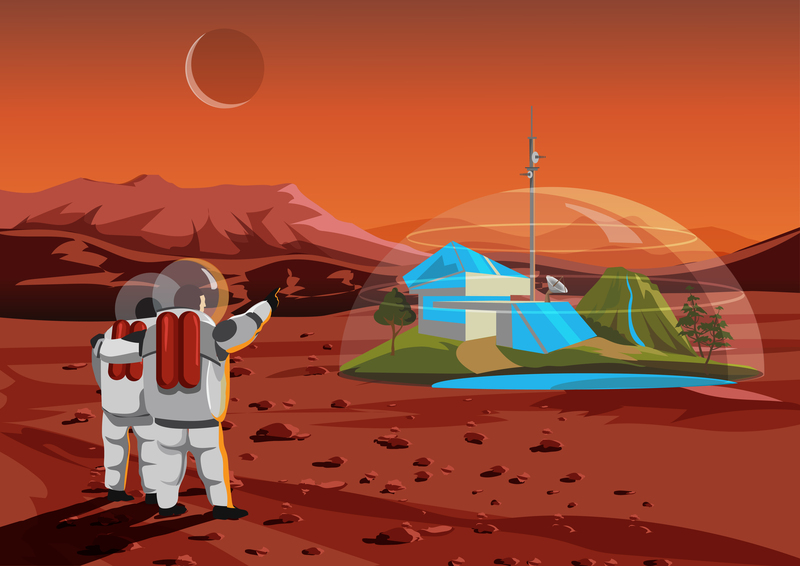Freezer Storage 101: Everything You Should Know for Safe Keeping
Freezer storage is one of the most efficient ways to extend the shelf life of perishable foods while preserving nutritional quality and flavor. Whether you're an enthusiastic home chef, a meal-prepper, or simply looking to cut down on food waste, understanding proper freezer storage is essential. In this comprehensive guide, you'll learn everything needed for safe freezer storage, including techniques, organization tips, and critical food safety advice. Let's dive into Freezer Storage 101!
Why Freezer Storage Matters
Freezer storage not only keeps your food fresh for months but also saves money, reduces food waste, and allows bulk shopping or meal prepping. However, improper freezer handling can lead to freezer burn, flavor loss, and even spoilage. Understanding the science behind freezing, including safe temperatures and the best packaging methods, is key for optimal freezer organization and food safety.

Understanding the Basics of Freezing
How Freezing Preserves Food
- Freezing halts microbial growth: Most bacteria and molds don't multiply below 0?F (-18?C).
- Enzyme activity slows: This preserves nutritional quality, taste, and texture.
- Water turns to ice: This change locks in moisture but can cause texture changes in some foods.
Safe Freezer Storage Temperature
Your freezer should always be set at or below 0?F (-18?C) for safe storage. Avoid frequent temperature fluctuations as they can compromise food safety and quality. Use a freezer thermometer for accurate monitoring.
Best Practices for Freezer Storage
1. Choosing the Right Containers
- Use airtight, freezer-safe containers: Prevents freezer burn and contamination.
- Freezer bags are ideal for space-saving and portioning.
- Glass and plastic containers designed for freezing resist cracking at low temperatures.
- Wrap items tightly in foil, plastic wrap, or freezer paper for added protection.
2. Label Everything
Always label your freezer items with the date and contents. Use waterproof markers or labels to ensure text remains legible over time. This simple step makes freezer organization hassle-free and helps reduce overlooked, expired food.
3. Don't Overfill Your Freezer
Overcrowding blocks cold air circulation, resulting in uneven freezing. Allow space between items for efficient cooling, especially when adding many unfrozen foods at once.
4. Flash Freezing
For foods that tend to clump (like berries or chopped veggies), try flash freezing. Spread food in a single layer on a baking sheet and freeze until solid before portioning into containers. This makes it easier to take out just what you need later.
Types of Foods You Can Safely Freeze
Almost any food can be frozen for safekeeping, but some handle freezing better than others. Understanding which foods thrive in the freezer--and how to prepare them--makes all the difference.
Fruits and Vegetables
- Berries, peaches, and chopped fruits: Freeze well, especially after flash-freezing.
- Blanch vegetables like green beans or broccoli before freezing to preserve texture and color.
- Leafy greens should be cooked or blanched before freezing.
- High-water veggies (cucumbers, lettuce) become mushy and are best eaten fresh.
Meats, Poultry, and Seafood
- Raw meat and poultry: Freeze in original packaging or rewrap for extra protection.
- Cooked meats: Cool completely before freezing to avoid ice crystals.
- Fish and seafood freeze well, especially fatty fish like salmon and tuna.
Dairy and Eggs
- Butter, cheese, and milk: Most freeze well, but cheeses may become crumbly.
- Eggs: Remove from shell and gently beat before freezing (raw).
- Yogurt and some creamy sauces may separate but are still safe in cooked recipes.
Bread and Baked Goods
- Breads, rolls, bagels, and tortillas freeze beautifully for up to 3 months.
- Muffins, cakes, and cookies retain freshness when properly wrapped.
- Avoid freezing items with icy or sticky glazes.
Foods That Don't Freeze Well
While the freezer is versatile, some foods lose quality when frozen:
- High-water vegetables (like cucumbers and celery) become limp and watery.
- Cream-based sauces and custard pies often separate.
- Soft cheeses (ricotta, cottage cheese) change texture and may become grainy.
- Fried foods lose crispiness unless reheated in an oven or air fryer.
How Long Can You Keep Food in the Freezer?
Freezer storage duration isn't infinite! While most foods are safe indefinitely at 0?F, quality declines over time. Here are approximate guidelines:
- Meat and poultry (raw): 6-12 months
- Cooked meat dishes: 2-3 months
- Seafood: 3-6 months
- Breads and baked goods: 2-3 months
- Fruits and vegetables: 8-12 months
Tip: For maximum freshness, rotate older items to the front and use them first ("first in, first out" method).
Preventing Freezer Burn
Freezer burn is caused by air exposure, resulting in dry, discolored patches and tough, flavorless food. Prevent it with these tips:
- Remove as much air as possible from bags and containers.
- Wrap food tightly, using double layers if storing for extended periods.
- Don't store food longer than recommended times.
- Keep freezer at a constant 0?F (-18?C).
Organizing Your Freezer for Safety and Efficiency
Declutter Regularly
Check your freezer every few months to remove expired or unwanted items. This ensures optimal storage space and less risk of cross-contamination.
Group Similar Items
Organize foods by category: meats, vegetables, ready-to-eat meals, and baked goods. Use baskets or bins for smaller items.
Use the First-In, First-Out Rule (FIFO)
- Arrange items so older products are used before newly frozen ones.
- Label each item with freezing date for easy tracking.
Thawing Frozen Foods Safely
Improper thawing can lead to bacteria growth, even after safe freezing. The golden rule is: never thaw at room temperature. Instead, try one of these methods:
- Refrigerator thawing: Plan ahead. Place food in the fridge for several hours or overnight.
- Cold water thawing: Submerge in leak-proof bag, changing water every 30 minutes.
- Microwave thawing: Use defrost setting, cook immediately after thawing.
- Some items (like frozen veggies) can be cooked directly without thawing.
Bonus Freezer Storage Tips
- Freeze in smaller portions: Quicker freezing and easy defrosting mean better quality and less waste.
- Stock up on freezer essentials: Keep a supply of freezer bags, labels, foil, and containers handy.
- Don't refreeze thawed foods unless they were thawed in the refrigerator and haven't been left out too long.
Eco-Friendly Freezer Storage Solutions
Minimize plastic use by opting for reusable silicone freezer bags and glass containers. Compost old, expired items instead of tossing in the trash when possible. Repurpose freezer space for homemade stocks, veggie scraps, or bread ends before they go bad.

Frequently Asked Questions About Freezer Storage
Is it safe to freeze food past its expiration date?
Freeze food before its "best by" or expiration date for optimal quality. Freezing doesn't make spoiled food safe, but it can extend the shelf life of foods that are still fresh at the time of freezing.
How can I tell if food has gone bad in the freezer?
Look for signs like unpleasant odors, excessive ice crystals, or discoloration. Freezer burn looks grayish-brown and dry, and though not unsafe, it affects quality. When in doubt, throw it out.
Can you refreeze thawed food?
Generally, it's safe only if the food was thawed in the refrigerator and hasn't reached unsafe temperatures. However, every freeze/thaw cycle decreases quality.
How do I prevent ice buildup in my freezer?
- Keep the door closed as much as possible.
- Check and replace door seals if needed.
- Defrost your freezer regularly if it's not frost-free.
Final Thoughts: Maximize Your Freezer for Food Safety and Savings
Mastering Freezer Storage 101 means knowing how to freeze, store, and organize foods to keep them safe and tasting great. It's a powerful way to save time, reduce food waste, and enjoy seasonal flavors year-round. By following the practical tips and expert advice in this guide, you'll turn your freezer into the ultimate ally for healthy, convenient, and sustainable home cooking.
Ready to start your safe freezing journey? Organize your freezer today--your future self (and your taste buds) will thank you!



